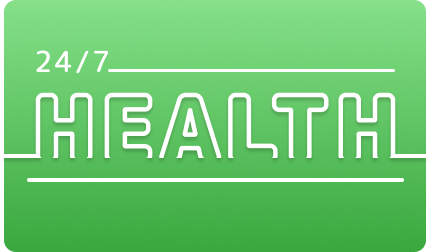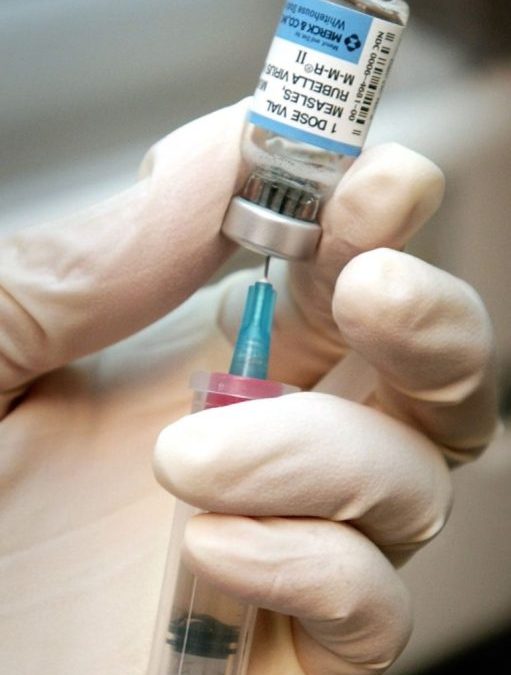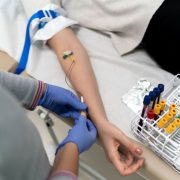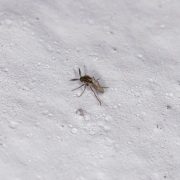As preventable infections like measles threaten to become endemic again in the US, researchers whose government grants were recently terminated are warning about the consequences of throttling studies looking at ways to increase vaccination.
Among more than 1,600 grant cancellations announced by the US Department of Health and Human Service since January 20, roughly 300 have been related to vaccines, making the area one of the largest focal points for funding cuts by the agency.
In a viewpoint published Monday in the journal JAMA, three pediatricians wrote about the letters they and their colleagues recently received terminating grants to research vaccine uptake, and they warned that “the lives of individuals in the US are at stake” if the government continues to undermine immunization.
Opel was part of a grant looking at ways to increase vaccine confidence in Alaska Native and American Indian communities.
The letter he and others received said, “It is the policy of [the National Institutes of Health] not to prioritize research activities that focuses gaining scientific knowledge on why individuals are hesitant to be vaccinated and/or explore ways to improve vaccine interest and commitment.”
The authors point out that this is an “astonishing about-face” for the agency, whose immediate past director, Dr. Francis Collins, had expressed regret that he and other top public health officials had underestimated vaccine hesitancy during the Covid-19 pandemic.
The change in policy at NIH also runs contrary to views expressed by international health and security agencies. In 2019, the World Health Organization recognized vaccine hesitancy as one of the top 10 threats to global health. The Center for Strategic and International Studies, a US think tank, has also stressed that vaccine confidence is essential for national security.
The authors of the JAMA paper say the loss of this critical support couldn’t have come at a worse time. A recent study estimated that 1 in 5 parents in the US are hesitant about vaccines, just as vaccine-preventable infections such as measles and whooping cough are surging again.
“It really makes no logical sense,” said co-author Dr. Sean O’Leary, a pediatrician at the University of Colorado Anschutz Medical Campus.
“We think of measles as the canary in the coal mine of vaccine-preventable diseases, because it’s so contagious that it’s the first one when you see immunization coverage in general drop. It’s the first one you’re going to see pop up.” he said – and other infections won’t be far behind.
The US is also coming out of its worst flu season in more than a decade, with more than half a million hospitalizations and 23,000 deaths to date. Experts attribute some of that severity to decreasing flu vaccination across all age groups.
HHS did not respond to a request for comment on the viewpoint.
As a measles outbreak grows in Texas, HHS Secretary Robert F. Kennedy Jr. wrote in an opinion piece on Fox News this month that parents should consult with health care providers “to understand their options to get the MMR vaccine” for their children.
Kennedy did not explicitly recommend the vaccine but acknowledged that it can protect individuals and contribute to community immunity.
“The decision to vaccinate is a personal one,” he wrote.
The sudden loss of research funding isn’t just disruptive, the viewpoint’s authors said, it’s also wasteful.
Co-author Dr. Melissa Stockwell, a pediatrician and chief of the Division of Child and Adolescent Health at Columbia University, was studying the effectiveness of text reminders to increase flu and Covid vaccines for kids. The researchers had enrolled pediatrics practices and conducted a pilot last fall. They were going to run the campaign again this fall, to see which messages resonated and were effective, but now won’t get the chance.
“They basically have invested nearly a million dollars already, and now we’re not going to be able to look at the results,” Stockwell said.
“What made it particularly devastating was that it wasn’t only my grant, but it was this community of researchers across the country. … It was all happening to us simultaneously,” she said.
Stockwell worries what that will mean for the health of children.
“We’re trying to make sure families have the information that they need to make health decisions for their children,” she added.
Taken in total, the vaccine grant cancellations signal “an endorsement of an approach to deprioritize science, no matter how fundamental that science is to the health of individuals in the US,” the viewpoint’s authors wrote.
The grant termination letters stress that “NIH is obligated to carefully steward grant awards to ensure taxpayer dollars are used in ways that benefit the American people.”
But any short-term savings on research related to vaccines is likely to cost the US money in the long run, experts say.
Vaccines are the one of the most cost-effective public health interventions, preventing the direct costs of caring for people in the hospital as well as increasing productivity and longevity. Every dollar spent on vaccines for kids saves roughly 10, according to the pro-vaccine nonprofit Vaccinate Your Family.
For the NIH to no longer be supporting them is chilling, Opel said. “It’s just absolutely unequivocal how important and beneficial vaccines are to the American public.”





